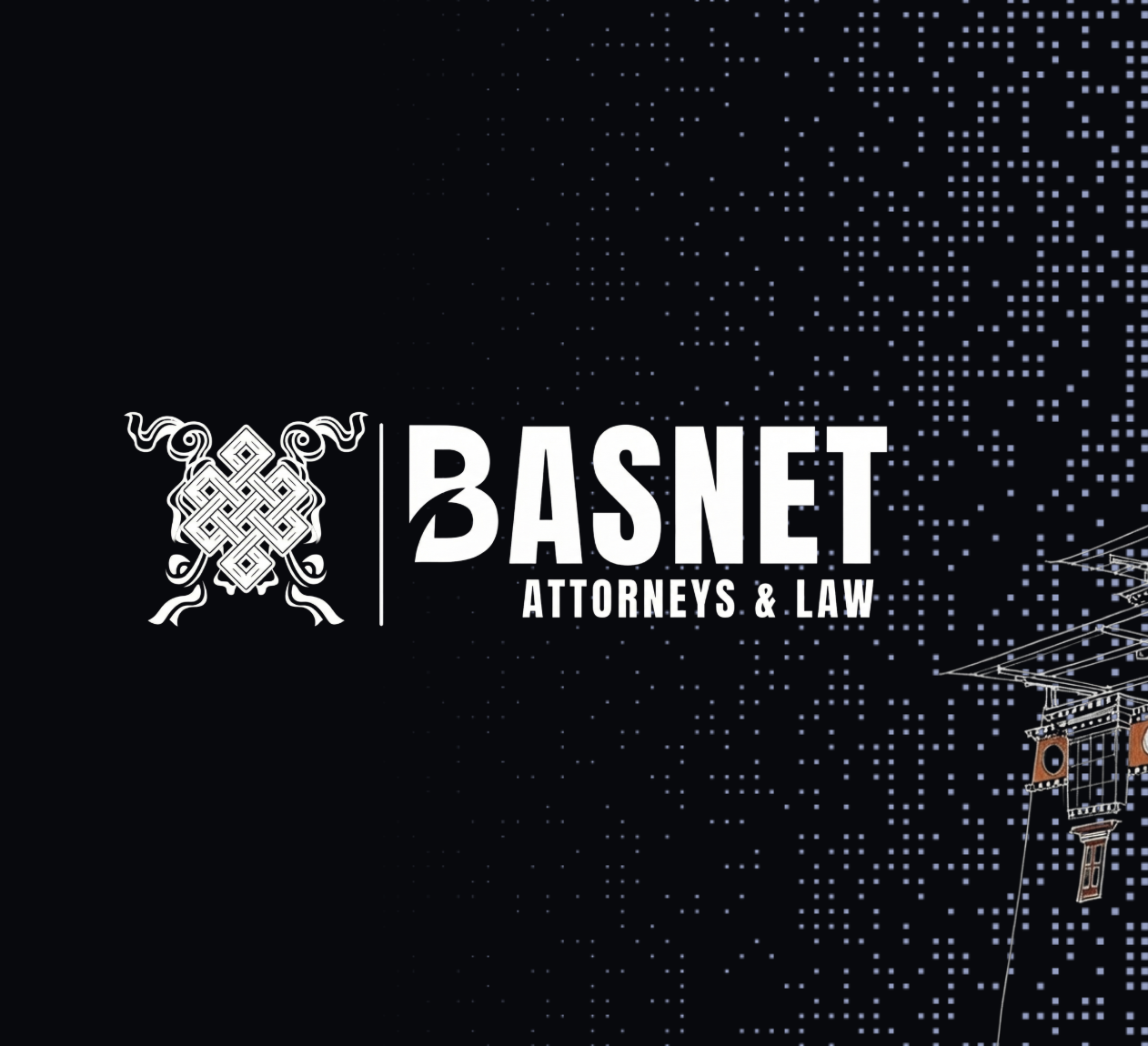Best Tax Increment Financing Lawyers in Bhutan
Share your needs with us, get contacted by law firms.
Free. Takes 2 min.
Or refine your search by selecting a city:
List of the best lawyers in Bhutan

Basnet Attorneys and Law - A Premier law Firm in Bhutan
15 minutes Free ConsultationAbout Tax Increment Financing Law in Bhutan
Tax Increment Financing (TIF) is an economic development tool used to stimulate growth and redevelopment in underdeveloped areas. In Bhutan, TIF can be used to fund infrastructure projects and other improvements by capturing the future tax benefits of the subsequent increase in property values. Bhutan's approach to TIF is in alignment with its focus on sustainable development and economic growth, aiming to enhance both urban and rural areas while adhering to the country's unique Gross National Happiness framework.
Why You May Need a Lawyer
There are several situations where you might need legal assistance with Tax Increment Financing in Bhutan:
- Project Planning and Development: Legal expertise is crucial when structuring and planning a TIF project to ensure that it complies with national and local laws.
- Contract Negotiations: Engaging in negotiations with developers and government bodies for TIF agreements may require complex legal knowledge.
- Dispute Resolution: Legal assistance might be needed to resolve disputes that could arise among stakeholders, including disagreements over project outcomes or contractual obligations.
- Regulatory Compliance: Understanding and complying with the regulatory framework surrounding TIF projects can be challenging, necessitating the help of an experienced lawyer.
Local Laws Overview
The legal framework governing Tax Increment Financing in Bhutan is based on the country's broader policies that emphasize sustainable development. Key aspects include:
- Property Valuation and Assessment: Understanding how property values are assessed for TIF purposes is crucial. Regulations dictate the baseline property values and how increments are calculated over time.
- Project Approval Processes: TIF projects in Bhutan are subject to rigorous approval processes to ensure they align with national priorities and local development plans.
- Environmental and Social Impact: Bhutan’s legal framework mandates assessments of environmental and societal impact as a part of the TIF approval process.
- Revenue Allocation: Laws dictate how revenues generated by TIF districts are allocated to service debt or reinvest in the community.
Frequently Asked Questions
What is Tax Increment Financing?
Tax Increment Financing (TIF) is a funding method used to spur economic development in specific areas by using future tax increments to finance current improvements and developments.
How is TIF applied in Bhutan?
In Bhutan, TIF is primarily used for infrastructure improvements, aligning with national development goals and sustainability. Projects must meet specific criteria and gain approval from regulatory bodies.
Who oversees TIF projects in Bhutan?
TIF projects are typically overseen by local government authorities in conjunction with national agencies responsible for development and economic growth.
How does TIF benefit local communities in Bhutan?
TIF helps by rejuvenating economically challenged areas, increasing property values, and creating jobs, all while maintaining Bhutan's commitment to sustainable development.
What are the risks associated with TIF?
Potential risks include project underperformance, increased public debt, and the displacement of existing residents or businesses if not managed carefully.
How are TIF funds allocated?
Funds are allocated according to the increment in property taxes due to increased property values and are typically used to finance approved project costs.
What criteria must a TIF project meet in Bhutan?
Projects must align with local and national development goals, demonstrate public benefits, and undergo thorough environmental and social impact assessments.
Can TIF be used for any type of development?
TIF in Bhutan is primarily used for public infrastructure improvements rather than private developments to align with the government's priorities for sustainable growth.
How long does the TIF process take?
The duration varies depending on project complexity and compliance with regulatory requirements. The approval process can be extensive to ensure adherence to national priorities.
How can stakeholders get involved in TIF projects?
Stakeholders can engage through public consultations, contribute feedback during project assessments, and collaborate in partnerships to execute TIF projects.
Additional Resources
The following resources may be valuable for someone seeking legal advice or additional information on Tax Increment Financing in Bhutan:
- Gross National Happiness Commission: Provides insights into Bhutan's sustainable development framework and how TIF ties into national goals.
- Ministry of Finance: Offers information on financial regulations, including tax policies applicable to TIF projects.
- Local Government Authorities: They are often the first point of contact for TIF project proposals and approvals in their respective jurisdictions.
- Legal Aid and Consultancy Services: Professional services can provide personalized advice and representation.
Next Steps
If you need legal assistance with Tax Increment Financing in Bhutan, consider the following steps:
- Research Qualified Lawyers: Look for legal professionals with experience in Bhutanese property and finance laws related to TIF.
- Schedule Consultations: Meet with several lawyers to discuss your specific needs and understand their approach to TIF issues.
- Gather Documentation: Prepare any relevant documents related to your potential TIF project, such as business plans, financial data, and previous assessments.
- Engage Legal Representation: Choose a lawyer who suits your needs and has a proven track record in handling similar cases.
Lawzana helps you find the best lawyers and law firms in Bhutan through a curated and pre-screened list of qualified legal professionals. Our platform offers rankings and detailed profiles of attorneys and law firms, allowing you to compare based on practice areas, including Tax Increment Financing, experience, and client feedback.
Each profile includes a description of the firm's areas of practice, client reviews, team members and partners, year of establishment, spoken languages, office locations, contact information, social media presence, and any published articles or resources. Most firms on our platform speak English and are experienced in both local and international legal matters.
Get a quote from top-rated law firms in Bhutan — quickly, securely, and without unnecessary hassle.
Disclaimer:
The information provided on this page is for general informational purposes only and does not constitute legal advice. While we strive to ensure the accuracy and relevance of the content, legal information may change over time, and interpretations of the law can vary. You should always consult with a qualified legal professional for advice specific to your situation.
We disclaim all liability for actions taken or not taken based on the content of this page. If you believe any information is incorrect or outdated, please contact us, and we will review and update it where appropriate.
Browse tax increment financing law firms by city in Bhutan
Refine your search by selecting a city.









